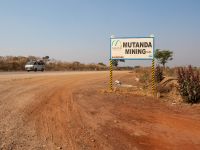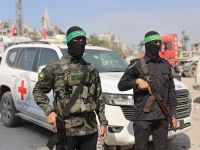The United Nations has withdrawn all foreign staff from Afghanistan amid concern over potentially violent protests against tough new sanctions likely to be announced this week, officials said Tuesday.
The last six senior UN officials in the country, from a total foreign staff of about 60, were seen leaving the rocket-scarred airport here early Tuesday on their way to neighboring Pakistan.
Their departure comes in expectation that the UN Security Council will adopt a resolution imposing broader sanctions against the ruling Taliban militia for its alleged support of terrorism.
Aviation and financial curbs imposed in November last year triggered a wave of violent protests in which UN offices around the country were ransacked.
"We are just leaving as a precautionary measure and hope to come back as soon as possible. The sanctions might be announced tonight," said one top official, asking not to be named, as she boarded a UN flight.
"We have not felt threatened," she said, adding: "We need to come back and we need to go to work."
Spokeswoman for the UN coordinator's office Stephanie Bunker told AFP the UN had received fresh assurances from Taliban Foreign Minister Wakil Ahmad Mutawakel that UN operations would be protected.
But Mutawakel has said spontaneous protests could still erupt against the sanctions, which have been condemned by Taliban officials as likely to cause a "humanitarian catastrophe."
Foreign relief workers, many of whom have also left in recent days, have said any disruption to their operations would have grave consequences for the hundreds of thousands of Afghans who depend on aid to survive.
Russia and the United States earlier this month jointly tabled the new sanctions with the Security Council, which was expected to take a decision later Tuesday in New York.
"I want to make absolutely clear that these proposed UN sanctions are targeted only at the Taliban leadership. They are designed specifically to avoid harming the Afghan people," US Assistant Secretary of State for South Asian affairs Karl Inderfurth said last week in Washington.
The draft sanctions would increase pressure on Kabul by adding an arms embargo against the Taliban but not their civil war enemies, further aviation restrictions and a travel ban against top officials.
Other measures would extend sanctions which took effect on November 16 last year, intended to force the Taliban to hand over indicted terrorist Osama bin Laden to answer 224 counts of murder and other charges.
In addition, the draft resolution makes a fresh demand for the puritanical Islamic militia to close alleged terrorist training camps.
The Taliban deny the existence of camps and defend Saudi-born bin Laden as a hero of the Afghan holy war against the 1979-89 Soviet invasion.
Bunker said the UN felt confident there would be no repeat of the mob violence of last year and that staff would be able to return after Christmas.
"We have received more assurances from within Afghanistan that the situation will remain stable," she said from the Pakistani capital, Islamabad, adding that the pullout was not an "evacuation."
"Those assurances look good so we're optimistic."
She said Afghan nationals had been put in charge of UN operations, which had not been affected by the withdrawal of foreign staff.
"It is a normal working day. We have received assurances that everything will be under control even if there are demonstrations," said an Afghan UN employee remaining behind in Kabul -- UNITED NATIONS (AFP)
© 2000 Al Bawaba (www.albawaba.com)







